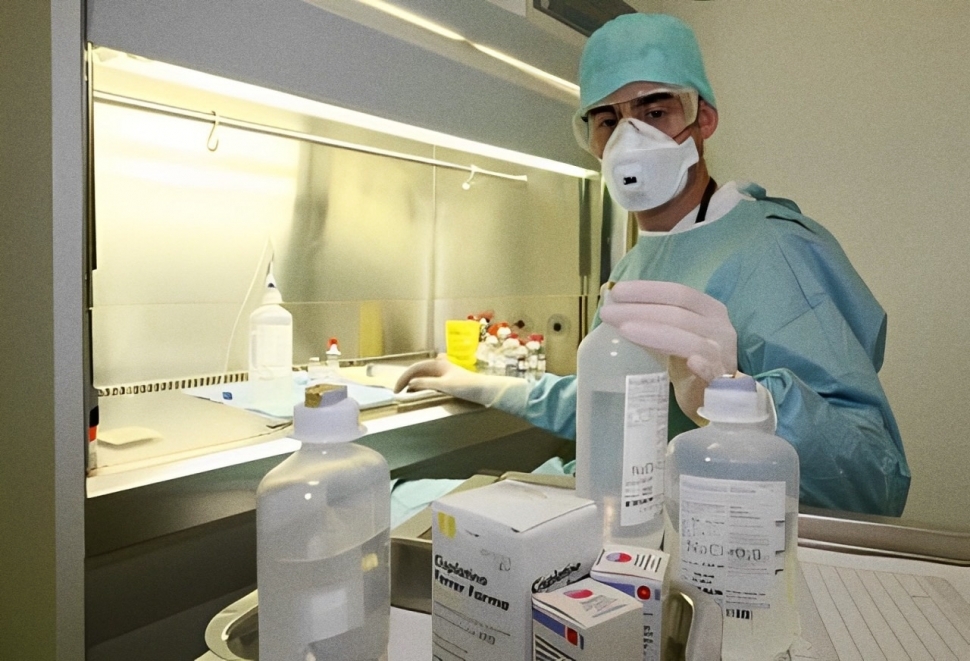Parkinson's disease is the most common movement disorder and the second most common neurodegenerative disease in the world, after Alzheimer's disease. It is estimated that 10 millionPeople suffer from this disease on a global scale, but by 2050, the number could double, as the neurological disease is the most increasing in terms of the number of cases, deaths and disability. In the last 20 years, the burden of disease, that is, the years of disability it causes, has been It increased by more than 80% and deaths doubled.
This increase is due toAging populations of rich countriesBecause Parkinson's disease-induced progressive degeneration of neurons that generate dopamine, a neurotransmitter responsible for transmitting information about movement, among other functions, increases with age, it is the main risk factor.
This does not mean that all patients are elderly. Between 10% and 15% are diagnosed under the age of 50 The average age of diagnosis is usually between 55 and 65 years, meaning they are people who have not yet entered retirement when they experience the first symptoms. Likewise, there are cases in children and adolescents, which have their own characteristics and slower progression.
Young patients
The incidence increases, especially after the age of sixty, but there are studies that also indicate an increase in younger patients, including:Between 30 and 50 years oldHowever, “these data should be taken with caution and see if they will be confirmed with more evidence in the future,” according to Dr. Álvaro Sánchez Ferro, coordinator of the Movement Disorders Study Group of the Spanish Society of Neurology (SEN).
The most famous and typical case of Parkinson's disease is that of the actor Michael J FoxWho learned that he was suffering from this disease at the peak of his career, when he was barely 29 years old. Although Parkinson's disease affects quality of life, thanks to treatments that reduce symptoms, many people can live practically normal lives years after diagnosis. But over time, the disease becomes degenerative and patients' condition gets worse or the medications stop working, since there is still no cure, stopping the disease or knowing its exact causes.
It is estimated that less than 10% of cases are linked to genes or genetic variants, usually people who had symptoms earlier. On the other hand, exposure to pesticides, solvents, pollution, maintaining a state of physical inactivity, social isolation, or inadequate control of sugar, blood pressure, or cholesterol can lead to the disease.
He explains: “But we do not know the exact cause, and that is why we are still unable to stop the disease.” Juan Pablo Romeroneurologist at the Beata Maria Ana Hospital and coordinator of the Movement Disorders Group of the Madrid Neurological Association (AMN).
In the past few years, evidence has emerged indicating this People who suffer from depression, loss of sense of smell, or involuntary movements during sleep eventually develop Parkinson's diseaseBecause “degeneration of the substantia nigra in the brain begins twenty years before the first symptoms appear” associated with the disease, such as tremors or muscle stiffness, but this does not mean that all people with these disorders suffer, over time, from a neurological disease. “If we can find out which ones will develop Parkinson's disease, we may also be able to slow the disease, but we don't know at the moment,” Dr. Romero adds.
Another difficulty is that not all sufferers suffer from movement problems, such as characteristic tremors or slow movement. Sometimes it starts with joint pain or depression In 30% of cases this is the first manifestation. “This is why you should be alert when people over 60 years of age start having these symptoms without having had previous attacks,” points out Dr. Sanchez Ferro.
The fact that it does not always cause tremors, or does not manifest itself in the first place, means that diagnosis is delayed, on average, between one and three years, and that according to the Spanish Society of Neurology (SEN), a third of new cases are not diagnosed and the delay is linked to the symptoms. This condition makes it necessary to consult a general practitioner, traumatologist or psychiatrist first before going to a neurologist who specializes in Parkinson's disease.
However, according to SEN in Spain there is About 160,000 affected2% of the population over 65 years of age and 4% of those over 80 years old. Since the main risk factor is age, and Spanish society will be aging, the number of affected people in Spain is expected to grow at a higher rate than in other countries and will triple in the next 25 years.
search
In this context, science is striving to find a cure. They are around Half a thousand tests in the world One of the most promising ones concerns lixisenatide, the same compound that shows results against diabetes and obesity and is included in the popular Ozempic, which can also affect the brain and slow down Parkinson's disease. It is also betting on immunotherapy or artificial intelligence to improve diagnosis, better understand patient development or develop treatments or surgeries.
Some of these experiments could produce results within five or ten years. “You have to be realistic and the experiments do not have short deadlines, but I am optimistic that it will be possible to find a way to stop the symptoms caused by the disease,” reflects the project coordinator. SEN movement disorders group. “A cure is a long way off, but arrest may actually happen within the next five or ten years,” Dr. Romero points out.
I answer
to'Girona Parkinson's Association AGIP held several events this week to mark World Parkinson's Day, including a symposium held in the Josep Irla Hall entitled “Living with Parkinson's” and an information table on the Rambla de la Libertat.
“We realized that there is only one association for Parkinson's patients in the Girona regions, which is why we decided to create an association in October 2022,” explains the association's president, Victoria Saget. “We started with eighteen people, but now we are seventy-four people, including patients and family members,” he adds. The goal of this group is clear: “To bring people with Parkinson's disease together and find a place to stay with people who understand what's happening to them,” Saget says. “It costs a lot of people to say they have Parkinson's disease, and we try to make them see the benefits of association and sharing their story,” Saget concludes.

“Infuriatingly humble social media buff. Twitter advocate. Writer. Internet nerd.”



